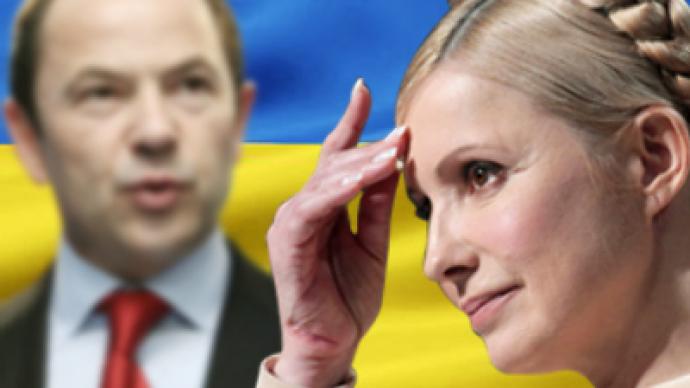From political backyard to a key role in the country’s future. In the first round of presidential voting, Ukrainian businessman and ex economics minister Sergey Tigipko set an example of how to hold a perfect campaign.
He invested more than US$100 million and attracted extremely talented PR managers (some of whom masterminded a successful campaign for New York’s mayor, Michael Bloomberg).
Political analyst and writer Dmitriy Vydrin says, Tigipko achieved something, deemed practically impossible by many experts – garner more than 3 million votes in a country suffering from election fatigue and disillusioned with politicians: “Every country experiences its very own ‘Obama-mania’ at a certain period of time. I do not exclude that in 2-3 years we will experience ‘Tigipko-mania’. He is simply the only one around who doesn’t belong to ‘families’, which everyone hates – bureaucrats and parliamentary deputies.”
A mix of colorful posters and a solid platform did the trick – quite unexpectedly Tigipko came third in the tight race, scoring 13 per cent of the total vote (which is almost three times as much as the incumbent president, Viktor Yushchenko managed to receive). Rada deputy Taras Chernovil says, Tigipko has managed to make at least some part of the country believe in a change: “His voters are intelligent people, who are not ready to idolize any politician today. They are both technical intelligentsia and business circles, not happy with Yanukovich’s reforms, nor with Tymoshenko’s tax policies. They do not accept populism and believe only in concrete actions”.
Tigipko’s rise from the ashes represents a miraculous comeback. The banker used to shine in Ukraine’s politics back in 1990’s – as deputy prime minister, economics minister and head of the National Bank of Ukraine. His own failings as head of Viktor Yanukovich’s camp in the 2004 Orange revolution prompted him to quit politics. For almost five years he was mostly involved in business, notably reaping a huge profit by selling his bank to a Swedish company, just a few weeks before the world financial turmoil. Tigipko used to work with both main candidates in this year’s presidential voting – as an advisor to both Yanukovich and Tymoshenko at different times.
But now the leader of the “Strong Ukraine” party does not trust either of them. “I will not make any recommendations to my voters,” said Tigipko after he learnt of his result in the first round of election. “They will decide for themselves whom to vote for in the second round. As for me, I won’t support either of them. I have worked with both, and so far I haven’t heard anything from them concerning real action in reforming Ukraine.”
Now for both Timoshenko and Yanukovich, Tigipko appears to be a key figure. Biting off even half of his 13-per cent electorate in their favor could prove vital for a victory. That is why both have been holding talks with Sergey, promising something in return for his voters’ support. Timoshenko has been saying that she would offer him the prime minister’s post (she officially confirmed this on Tuesday), while Yanukovich’s pledge so far has been to call an early parliamentary ballot should he become president (such a move – according to experts – would guarantee Tigipko a place in parliament. And given his impressive result in the presidential vote, this would be a significant proportion of the Rada). Tigipko seemed more interested in the former, saying that “Timoshenko’s proposal was more concrete,” though he was not sure that she would keep this promise.
However, one of Ukraine’s leading political analysts, Dmitry Vydrin, believes that at the end of the day, the fate of this 13 per cent is not exactly in Tigipko’s hands: “Even if Tigipko supported any of them, it would hardly affect the distribution of votes. It all depends not on Tigipko’s preferences, but on what his electorate thinks.”
Tigipko has reacted positively to an offer of the prime minister’s job, saying he would take it on one condition: if he sees that the new president is ready to take hard and unpopular steps in order to completely modernize the country. That includes stronger support of small businesses, reforms of tax legislation and even sharing half of Ukraine’s gas transportation system with Russia and the EU. It seems that for him – probably just as for his part of the electorate – it does not matter who wins, as long as his or her words match some action.
Alexey Yaroshevsky, RT
Kiev, Ukraine
Read also: Georgia gradually finds itself in international isolation

